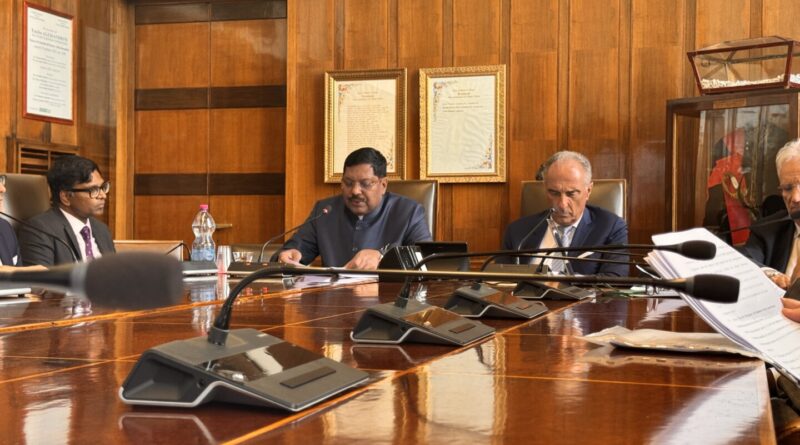More Than Governance—India’s Constitution as a Beacon of Social Justice, Says CJI BR Gavai
(Judicial Quest News Network)
19, June, 2025- Chief Justice of India, B.R. Gavai, speaking at the Milan Court of Appeal in Italy, emphasized that the Indian Constitution is not merely a political charter for governance but a revolutionary statement of hope for a nation emerging from the shadows of colonialism, poverty, inequality, and deep social divisions.
Delivering a lecture on “The Role of the Constitution in Delivering Socio-Economic Justice: Reflections from 75 Years of the Indian Constitution”, CJI Gavai expressed pride in the fact that the framers of the Indian Constitution were deeply conscious of the imperative to enshrine socio-economic justice in its provisions.
He highlighted that the Directive Principles of State Policy reflect the Constitution’s firm commitment to achieving social and economic justice. “It was a promise of a new beginning—where social and economic justice would form the core goals of the republic. At its heart, the Indian Constitution upholds the ideals of freedom and equality for all,” he said.
CJI Gavai noted that, in the early years following its adoption, several constitutional experts had questioned the viability of the Indian Constitution. For instance, Sir Ivor Jennings described it as “too long, too rigid, and too prolix.” However, the experience of the last 75 years, he said, has proven such skepticism wrong. “India’s Constitution has played a pivotal role in advancing socio-economic justice for its citizens,” he stated.
He elaborated on various legislative measures passed by Parliament to implement the Directive Principles, along with landmark judicial interpretations that expanded the scope of fundamental rights, thereby striving to bring meaningful change to the lives of ordinary citizens.
“In essence, the journey of the Indian Constitution over the past 75 years in delivering socio-economic justice is a story of bold ambition and substantial achievements,” he said.
Among the significant reforms he cited were land and agrarian reform laws and affirmative action policies for marginalized communities. While land reforms helped dismantle entrenched feudal structures and break the rigid caste-based control over land and livelihood, affirmative action policies addressed historical injustices and enhanced representation of Scheduled Castes, Scheduled Tribes, and socially and educationally backward classes.
“The Constitution has given us the vision, the tools, and the moral compass. It has demonstrated that law can be an instrument of social transformation, a force for empowerment, and a shield for the vulnerable,” CJI Gavai concluded.
He ended his address by invoking the words of civil rights icon Dr. Martin Luther King Jr.: “The arc of the moral universe is long, but it bends toward justice—only if we actively work to bend it.”




